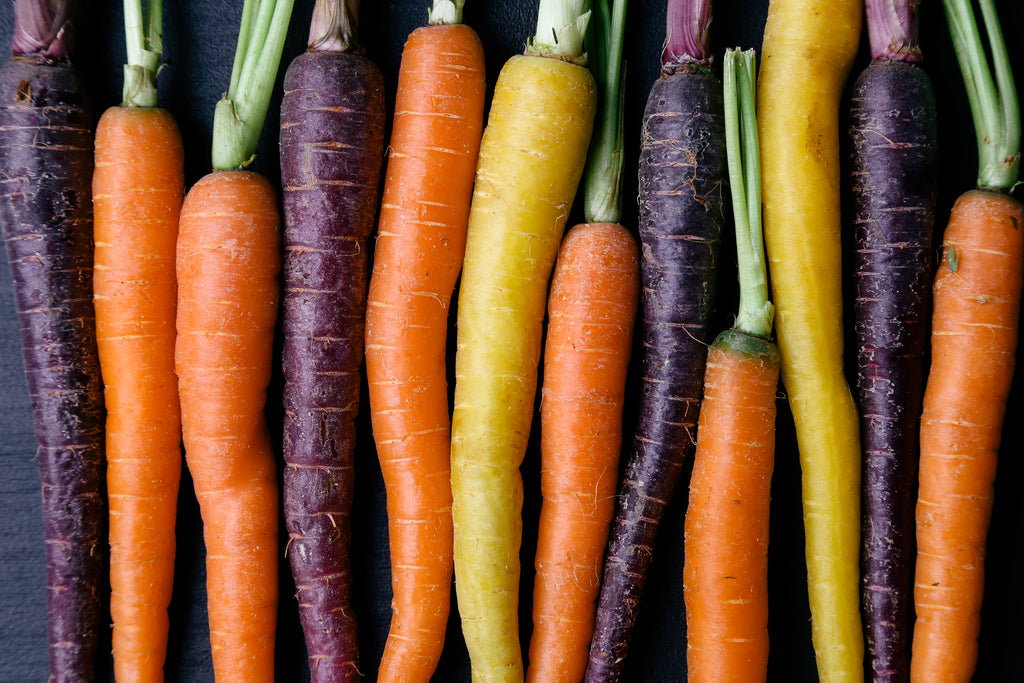The Center for Disease Control and Prevention reports that about
- 12 million Americans over the age of 40 live with vision impairment problems
- For 4.2 million Americans over 40, vision impairment is not reversible
- Among American adults, 28% or 93 million are at risk of vision impairment
To protect your eyesight, early prevention strategies are key:
Diet plays a major role in reducing vision impairment risks. Fortunately, it’s easier for people to access healthy foods these days. A Maryville University article notes that future public health trends will increase measures to improve the public’s access to nutritious food. More information on healthy lifestyles and eating choices are becoming available thanks to the continued effort of public health professionals. This increased availability empowers you to make smarter choices with your diet.
The following foods can help you promote healthy eyesight:
Carrots
When people think about the best foods for eye health, carrots come to mind. There’s a longstanding myth that eating carrots improves vision. This claim was actually a piece of propaganda spread by the British Government in World War II. To hide the fact that their air force now worked with advanced radar and red light technologies, the British claimed it was a diet of carrots that improved their pilots’ ability to identify enemy planes.
Though its effects on eyesight have been greatly exaggerated, carrots still play a major role in eye health. This is because carrots contain vitamin A, and the body requires high levels of vitamin A to reduce its risk of contracting night blindness. Carrots also contain beta carotene, which strengthens the retina’s defense against oxidative stress.
Citrus Fruits
The anti-oxidant vitamin C protects your eyes from the harmful free radicals that damage cells and contribute to vision impairment issues such as cataracts and macular degeneration. Vitamin C also improves the functioning of the retina, which allows you to see properly. And no other food group is better-known for their vitamin C content than citrus fruits, such as oranges, lemons, and grapefruits. Other foods rich in vitamin C include red foods like strawberries, tomatoes, and bell peppers.
Fish
Macular degeneration, which refers to the natural wearing down of the macula within the retina, is the most common cause of blindness in the world. It occurs most often in people above the age of sixty, but risks worsen in those with high blood pressure, high cholesterol, obesity, and smoking problems.
However, studies have shown that regular consumption of omega-3, found in fatty fish, helps the body build and strengthen the cells within the macula. Those that want to stave off age-related vision problems can consume foods like salmon, sardines, and anchovies. Nuts and seeds are good alternatives for vegan or vegetarian diets.
Green Leafy Vegetables
Green, leafy vegetables like broccoli, spinach, and kale, are a great source of both beta carotene and vitamin C. And, like omega-3, the nutrients green vegetables contain can effectively reduce a person’s risk of developing macular degeneration. Green vegetables contain minerals like iron, calcium, and magnesium, which prevent cataract clumps from forming at the surface of the eyes. Their high lutein and zeaxanthin content improves the eyes’ ability to filter blue light, which helps people combat eye strain from prolonged use of digital screens.
Our piece entitled ‘The 4 Pillar Plan and Can it Help You Live More Healthily’ notes that one of the most important pillars of health is your diet. People need to ensure that the food they eat empowers their bodies to function well. To protect eyesight, consume foods like carrots, citrus fruits, fish, and leafy greens.




